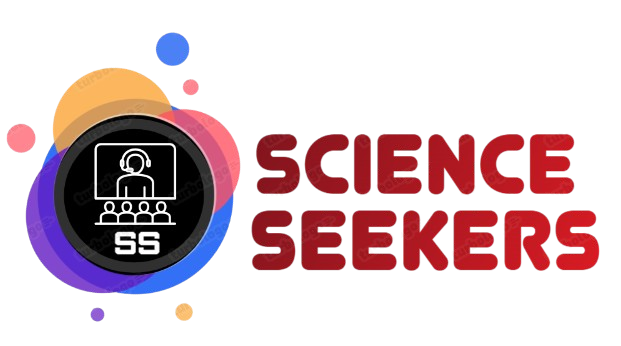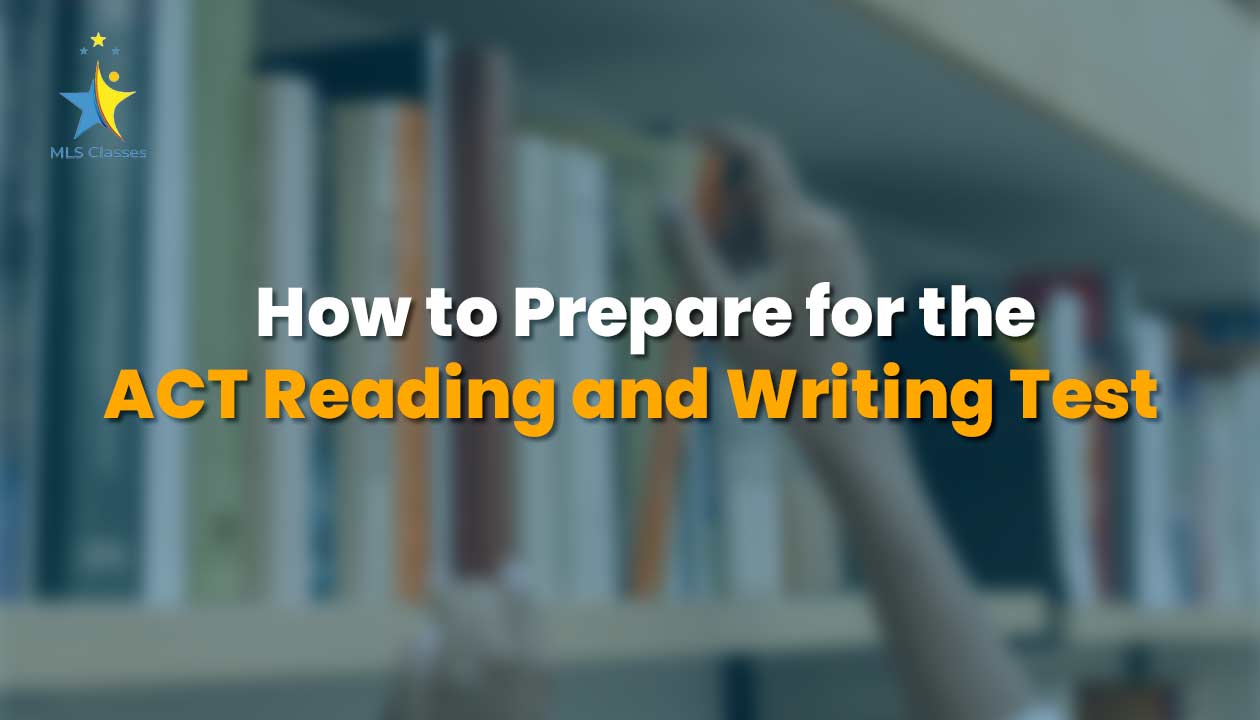Test Preparation
Achieve Your Dream Scores with Expert Guidance
At Science Seekers, we offer strategic, board-aligned, and exam-focused test preparation programs designed to help you excel in high-stakes exams. Whether you’re preparing for AP courses, the ACT, SAT, MCAT, or IMAT — our expert tutors, structured content, and smart practice tools ensure that you’re not just ready, but confident.
Digital SAT
Score Higher with Targeted SAT Math Coaching
At Science Seekers, we specialize in SAT Mathematics preparation designed for the Digital SAT format. Our program combines expert instruction, proven strategies, and adaptive practice tools to help students boost their scores and approach the test with confidence
- Heart of Algebra
- Problem Solving & Data Analysis
- Passport to Advanced Math
- Geometry and Trigonometry

Key Features of Our ACT Tutoring

Live Online Interactive Classes

Over 50 hours of tutoring

1:1 Classes available for the ACT Exam

Over 100 adaptive mock tests
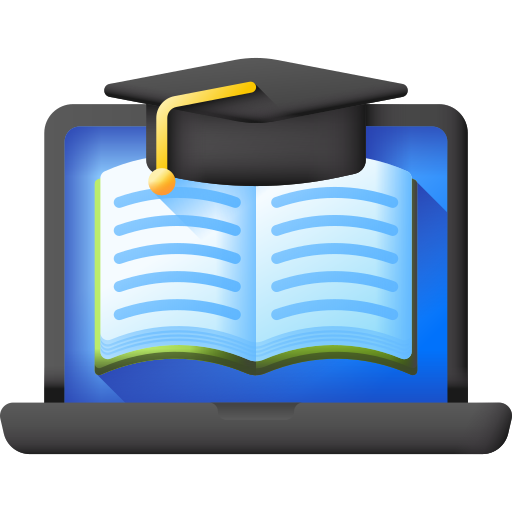
Support for 2 attempts for the Digital SAT Exam

Specialized preparation materials
SAT Prep Courses Offered by Science Seeker for Students
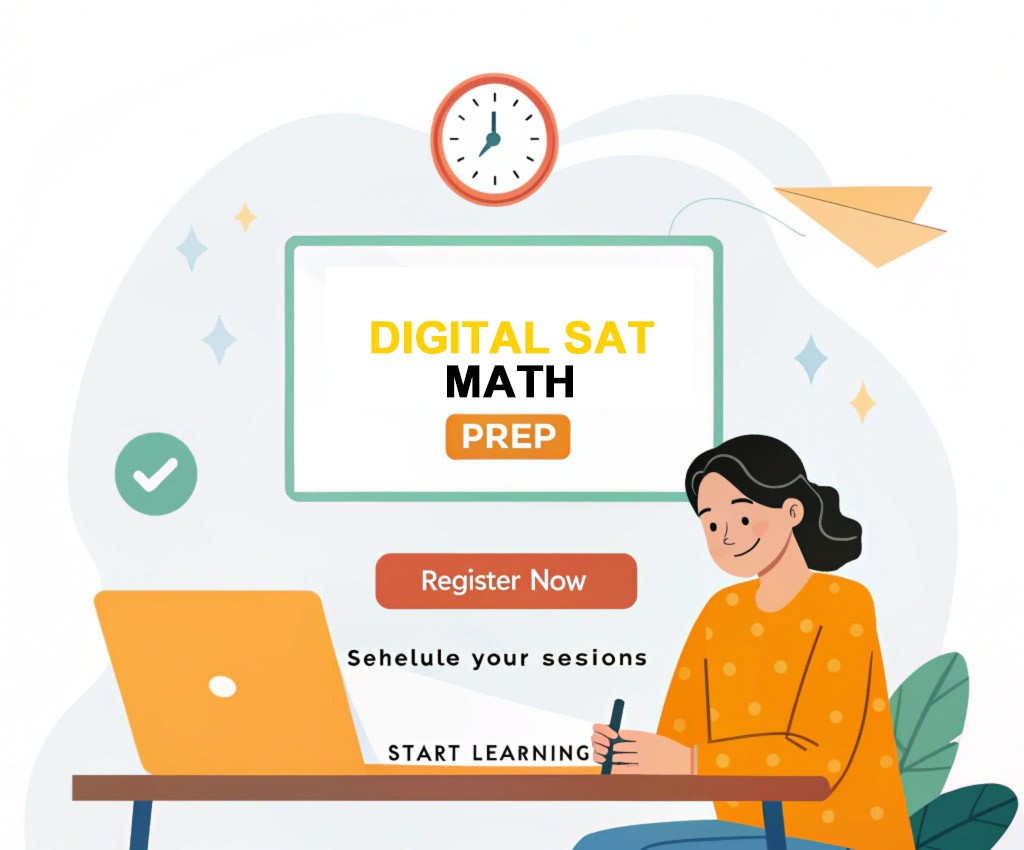
Digital SAT Math Prep
Designed for students who need extra practice in problem-solving and advanced math concepts.
Topic We Cover
Algebra
We cover linear equations and inequalities as well as analyze and fluently solve systems of equations.
Linear Equations and Inequalities: Students will master the art of solving linear equations and inequalities, building on their understanding of algebraic expressions.
System of Equations: We delve into solving systems of linear equations, enabling students to handle multiple variables and constraints confidently.
Expressions and Polynomials: Our program helps students simplify and manipulate expressions and polynomials, preparing them for more complex algebraic operations.
Advanced Math
Elevate your understanding of advanced math concepts to increase your skills and knowledge.
Quadratic Equations: Students will gain expertise in solving quadratic equations, a fundamental concept that bridges the gap between basic and advanced algebra.
Functions: We explore various types of functions, ensuring students understand their properties and applications.
Nonlinear Expressions: Our curriculum includes tackling nonlinear expressions, providing a deeper understanding of mathematical relationships.
Problem Solving and Data Analysis
Solve real-world problems by understanding and using quantitative reasoning.
Ratios, Proportions, and Percentages: Students will develop strong skills in working with ratios, proportions, and percentages, which are essential for data analysis and real-world problem-solving.
Statistics (Mean, Median, Mode, Standard Deviation): We cover key statistical concepts, enabling students to analyze and interpret data effectively.
Probability: Understanding probability is crucial, and our program ensures students can calculate and apply probability in various scenarios.
Geometry and Trigonometry
Solve complex problems with confidence and accuracy in the fundamentals.
Plane Geometry (Circles, Triangles, Polygons): Students will explore the properties of plane geometric figures, building a solid foundation in geometry.
Coordinate Geometry: We introduce coordinate geometry, helping students link algebra with geometric concepts.
Trigonometric Ratios (Sine, Cosine, Tangent): Our curriculum thoroughly studies trigonometric ratios, essential for advanced geometry and trigonometry.
Advanced Geometric Concepts (Radians, Sector Areas): We cover advanced topics like radians and sector areas, preparing students for higher-level mathematics.
How long should I study for the Digital SAT?
Study duration for digital SAT math:
Starting Proficiency: Strong math skills a few weeks for slight improvement.
Moderate Improvement: 2-3 months for moderate score boost (hours weekly).
Significant Improvement: 3-6 months for substantial progress.
Score Target: Higher targets may need more time.
Consistency: Regular practice beats cramming.
Study Schedule: Start light and increase it near the test.
Practice Tests: Include tests and review time.
Progress Check: Regular assessment for plan adjustments.
Exploring the course highlights and curriculum overview:
Dive into all aspects of Digital SAT Math with our in-depth curriculum, covering key concepts and problem-solving approaches:
Official and Expert Materials: Benefit from a rich collection of Digital SAT Math Question bank sourced from the official Digital SAT Guide by the College Board and curated by expert educators.
Diagnostic Test Review: Analyze your diagnostic test results to understand your starting point. MLS Classes provide the Test Prep for your performance
Practice Test Mastery: Review and learn from 10 full-length practice tests assigned as home assignments.
Personalized Feedback: Receive detailed scorecards and feedback after each practice test, allowing you to track your progress and focus on areas of improvement.
Realistic Practice: Experience the Digital SAT environment with supervised full-length practice tests, mimicking actual test conditions.
Comprehensive Curriculum: Covers all SAT math topics thoroughly.
What strategies can you employ to improve my performance in Digital SAT Math Test?
Success in the Digital SAT exam requires a strategic and well-rounded approach. First, you must understand Digital SAT math’s structure, sections, and time allocation. Get help from teachers, tutors, or forums for challenging concepts.
Adopt practical approaches like estimation and elimination to tackle complex problems effectively—master core algebra, geometry, and statistics concepts, ensuring comfort with essential formulas and problem-solving techniques. Regular practice is crucial to solving various practice questions and full-length tests to build familiarity and confidence.
Maintaining a positive mindset can significantly enhance performance—confidence in your preparation is vital. Use resources such as prep books, online guides, and practice tools to strengthen your understanding. Seek assistance from teachers, tutors, or forums to clarify challenging concepts.
Finally, prioritize your health with adequate rest, hydration, and a balanced diet, as these factors directly impact cognitive function. Take short breaks during study sessions to maintain mental freshness and prevent burnout. Consistent effort will lead to improvement in the Digital SAT math section.
Is the Digital SAT Math subject test considered challenging?
Here are a few factors to consider when assessing its level of challenge:
- If you have a strong foundation in math and are comfortable with the topics covered, you might find the test less challenging. Adequate preparation through study, practice tests, and review can significantly impact your comfort level with the test.
- The test covers various math topics, including algebra, geometry, trigonometry, and precalculus. Depending on your familiarity with these areas, some questions may be more challenging.
- The test includes multiple-choice questions and grid-in questions that require you to solve and provide an answer. Different question types might present varying levels of challenge.
What are the best tips for Digital SAT math preparation?
Adequate Digital SAT math preparation requires a combination of strategies tailored to your strengths and weaknesses.
Conduct a high-quality and diagnostic test
Begin with a practice test to identify your strengths and areas for improvement. They show your progress, analyze your areas of weakness, and give you a clearer idea of the format and scheduling of the test.
Do Practice Regularly and Identify Weaknesses
Engage in consistent practice by solving various math questions and full-length practice tests. Focus on challenging topics to improve your understanding and performance.
Use Reliable Resources and Focuses on Key Points
Review all math topics covered in the Digital SAT, including algebra, geometry, and statistics. If you struggle with specific concepts, consider seeking help from teachers, tutors, or online resources.
Always Stay Positive and Time Management
Maintain a positive attitude and confidence in your preparation efforts. Practice answering questions within the allocated time to develop practical time management skills.
Test-Taking Strategies and Stimulate Test Conditions
Learn and practice problem-solving strategies such as elimination, estimation, and substitution. Practice under timed conditions to familiarize yourself with the pressure of the actual test.
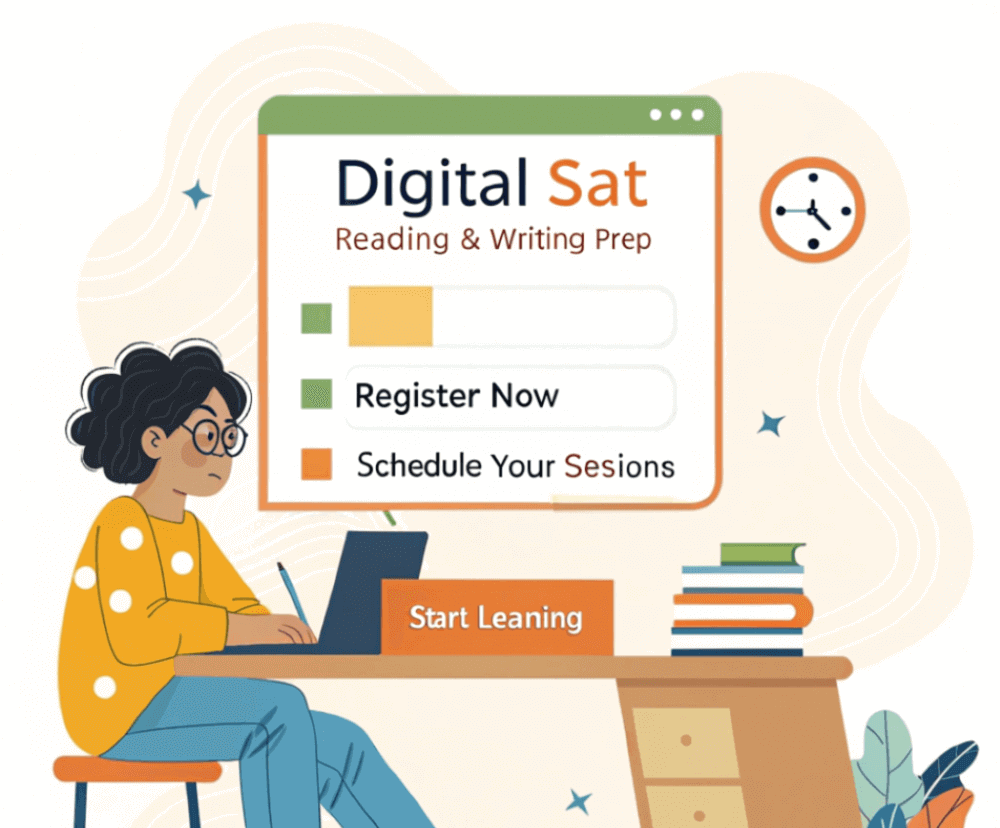
Digital SAT Reading & Writing Prep
Specialized coaching to improve reading comprehension and essay-writing skills.
What are Digital SAT Reading and Writing Passages Like?
The Digital SAT Reading & Writing section comprises passages from various subjects, including literature, history, science, and social studies. This section’s passages range from 25 to 150 words.
These passages are carefully curated to reflect the types of texts students encounter in their academic journey. Each passage presents short reading passages, followed by a single multiple-choice question.
They vary in complexity, style, and content, challenging you to engage with diverse materials and demonstrate your comprehension skills. To help you plan your time, questions that test similar information and skills are put together and ranked from easy to hardest.
What is the Digital SAT Reading and Writing Questions Format?
The Digital SAT Reading and Writing section question format in four content domains: Craft and Structure, Information and Ideas, Standard English Conventions, and Expression of Ideas.
The questions vary in format, including multiple-choice, identifying errors, and improving sentences. The Reading questions focus on the main ideas, evidence, and author’s reasoning, while the Writing questions assess grammar, usage, and practical expression.
Information and Ideas
It measures Test knowledge and skills in reading comprehension, analysis, and thinking, as well as the ability to find, understand, evaluate, and combine information and ideas from texts and data images (such as tables, bar graphs, and line graphs).
Craft and Structure
We delve into solving systems of linear equations, enabling students to handle multiple variables and constraints confidently.
Expression of Ideas
Our program helps students simplify and manipulate expressions and polynomials, preparing them for more complex algebraic operations.
Standard English Conventions
Students will gain expertise in solving quadratic equations, a fundamental concept that bridges the gap between basic and advanced algebra.
How to Start Practicing for Digital SAT Reading & Writing
Science Seekers offers specialized tutoring for the Digital SAT Reading & Writing, providing tailored guidance to enhance performance. Their experienced tutors are well-versed in the intricacies of the Digital SAT and its Reading & Writing components.
They offer personalized instruction, comprehensive practice, and proven strategies to help you navigate the challenges of this section.
Our approach involves:
Customized Instruction: Tutors analyze your strengths and weaknesses to tailor their approach to your needs.
Comprehensive Practice: Use ample practice exercises and real Digital SAT-style questions to build familiarity and confidence.
Strategic Techniques: Learn practical strategies for tackling different question types, managing time, and enhancing comprehension skills.
Feedback and Improvement: Receive detailed feedback on your practice tests and assignments to identify areas for improvement.
What We Cover in SAT Preparation
At Science Seekers, our SAT preparation program is designed to build skills, boost confidence, and help students reach their highest potential. We cover every section of the test with focused strategy and in-depth support.
Evidence-Based Reading
- Passage comprehension strategies
- Vocabulary in context
- Identifying main ideas, tone, and inference
- Analyzing historical, scientific, and literary texts
Writing and Language
Grammar and usage rules
Sentence structure and clarity
Punctuation and paragraph organization
Improving expression and style
Math (No Calculator + Calculator)
- Algebra, Linear Equations, and Inequalities
- Problem Solving & Data Analysis
- Advanced Math (functions, quadratic equations, etc.)
- Geometry, Trigonometry, and Statistics
- Fast calculation tips and mental math techniques
Practice Tests & Test-Taking Strategies
Full-length SAT mock exams
Time management drills
Answer elimination techniques
Score review and feedback sessions

AP Courses
Excel in Advanced Placement Subjects with Expert Online Tutoring
Science Seekers offers comprehensive AP preparation designed to help students build strong subject knowledge, master exam strategies, and achieve top scores (4 or 5) in their AP exams. Whether you’re aiming for college credit or a competitive academic edge, our expert-led programs are here to support your success.

AP Physics(AP Physics 1 & 2, AP Physics C:Electricity and Magnetism, AP Physics C: Mechanics )
Understand the laws of motion, energy, electricity, and magnetism with deep conceptual clarity and practical problem-solving sessions.
Topic We Cover
Topics Covered in Online AP Physics 1 and 2 Syllabus
Our MLS Classes are designed to help students succeed in AP Physics 1 & 2 by providing the support needed to excel in these challenging subjects. Our skilled tutors are committed to assisting students to succeed in AP physics by providing the necessary support to master the subject.
The Topics of AP Physics 1 are Kinematics, Dynamics, circular motion and gravitation, energy and work, momentum and impulse, simple harmonic motion, rotational motion, oscillations, and waves and sound.
The topics of AP Physics 2 are fluid mechanics, thermodynamics, electricity and magnetism, optics, quantum mechanics and atomic physics, relativity, and modern physics concepts.
Key Topics in Online AP Physics C: Electricity and Magnetism
MLS Classes are designed to help students succeed in this subject by providing the support needed to excel in this advanced subject. Our approach emphasizes a deep understanding of essential topics, including:
Electrostatics
It covers fundamental ideas, which include Coulomb’s regulation, electric fields, and capability, Gauss’s regulation, and capacitance and dielectrics. These topics form the foundation for understanding electric forces, energy garages, and subject conduct in AP Physics C: Electricity and Magnetism.
Current and Circuits
They are crucial topics in understanding the flow of electricity. It covers fundamental concepts such as electric current and resistance, Ohm’s law, Kirchhoff’s policies, and RC circuits.
Magnetism
It encompasses key standards along with magnetic fields and forces, Ampere’s law, magnetic fields due to the present day, and Faraday’s law of induction. These principles assist in apprehending how magnetic fields interact with electric currents.
Electromagnetic Induction and AC Circuits
It explores key concepts that include inductors and mutual inductance, RLC circuits, and electromagnetic waves and packages. These concepts are crucial for expertise in the interplay between electric and magnetic fields.
Key Topics in Online AP Physics C: Electricity and Magnetism
MLS Classes are designed to help students succeed in this subject by providing the support needed to excel in this advanced subject. Our approach emphasizes a deep understanding of essential topics, including:
Electrostatics
It covers fundamental ideas, which include Coulomb’s regulation, electric fields, and capability, Gauss’s regulation, and capacitance and dielectrics. These topics form the foundation for understanding electric forces, energy garages, and subject conduct in AP Physics C: Electricity and Magnetism.
Current and Circuits
They are crucial topics in understanding the flow of electricity. It covers fundamental concepts such as electric current and resistance, Ohm’s law, Kirchhoff’s policies, and RC circuits.
Magnetism
It encompasses key standards along with magnetic fields and forces, Ampere’s law, magnetic fields due to the present day, and Faraday’s law of induction. These principles assist in apprehending how magnetic fields interact with electric currents.
Electromagnetic Induction and AC Circuits
It explores key concepts that include inductors and mutual inductance, RLC circuits, and electromagnetic waves and packages. These concepts are crucial for expertise in the interplay between electric and magnetic fields.
Benefits of AP Physics
Studying AP Physics provides students with a strong scientific foundation and prepares them for future studies in engineering, medicine, data science, and more. At Science Seekers, our expert-led AP Physics courses help students succeed academically and beyond.
Why Take AP Physics?
College Credit & Advanced Placement
Earn potential college credits while in high school and place out of introductory college courses.Strong STEM Foundation
Develop a deep understanding of mechanics, electricity, magnetism, and other key physics concepts.Critical Thinking & Problem-Solving
Sharpen analytical skills through real-world problem-solving and lab-based learning.Boost Your College Application
Stand out in university applications by demonstrating academic rigor and interest in STEM.Preparation for Competitive Exams
Build the knowledge base and skills required for exams like the SAT Subject Test, ACT, MCAT, and engineering entrance tests.Confidence in Complex Concepts
With our interactive tools, visual explanations, and expert guidance, students gain clarity in even the toughest topics.

AP Chemistry
Master chemical equations, atomic structure, thermodynamics, and lab-based applications with interactive lessons and targeted practice.
Topic We Cover
Our classes are designed to help students reach the AP Chemistry examination by providing the help they need to excel in this challenging subject. Our method emphasizes a deep expertise in vital subjects, including:
Atomic Structure and Periodicity
It explores the essential ideas of atomic concepts, such as models, electron configuration, and periodic trends.
Chemical Bonding and Molecular Structure
It includes information on how atoms combine to form compounds through one-of-a-kind sorts of bonds like ionic and covalent bonding, Lewis systems, and molecular geometry.
Stoichiometry
It involves expertise in quantitative relationships in chemical reactions, balancing chemical equations, reactant and product quantities, limiting reactants, and percentage yield calculations.
Chemical Thermodynamics
It explores heat and energy changes in chemical reactions, enthalpy and calorimetry, and Gibbs free energy.
Chemical Kinetics
It explores the speed of chemical reactions and the factors that impact them. It covers reaction prices and mechanisms, price laws and response order, and activation energy and catalysts.
Chemical Equilibrium
It covers a dynamic equilibrium, Le Chatelier’s Principle, and Equilibrium constants (Kc and Kp).
Acids and Bases
These are crucial in chemistry, influencing reactions, biological structures, commercial strategies, understanding pH and pOH calculations, acid-base titrations, and buffer answers and equilibrium.
Electrochemistry
It covers redox reactions and balancing of redox reactions, electrochemical cells, trendy electrode capability, and applications of electrochemistry.
Benefits of AP Chemistry
- ♦Deepens Understanding of Core Concepts
We help students in the AP Chemistry exam that covers master atomic structure, kinetics, thermodynamics, and equilibrium. Our online practice exams reinforce these concepts in a structured, exam-like format.
- ♦Improves Time Management & Exam Strategy
Our timed practice helps AP Chemistry’ students adapt to exam pacing, improving speed, accuracy, and confidence in multiple-choice and free-response sections.
- ♦Instant Feedback for Targeted Improvement
Our online AP Chemistry practice exams offer instant results with detailed explanations, helping students identify weaknesses, refine problem-solving skills, and strengthen key concepts.
- ♦Develops Critical Thinking & Analytical Skills
Regular practice with AP Chemistry questions strengthens logical thinking, enhances pattern recognition, and builds confidence in solving complex problems.
- ♦Convenient & Flexible Learning
Our online AP Chemistry practice exams offer flexible, anytime access on any device, ensuring consistent learning without scheduling limits.
Why Choose AP Chemistry?
College Credit & Placement Advantage
Score well on the AP exam and earn college credits while still in high school, giving you a head start on your degree.Strong Foundation in Chemistry Concepts
Understand essential topics like atomic structure, bonding, thermodynamics, kinetics, equilibrium, acids & bases, and electrochemistry.Boost in Scientific Thinking
Develop the ability to interpret data, analyze lab results, and think critically—skills essential for future scientific studies.Competitive Exam Readiness
Get a solid base for entrance exams like the SAT Subject Tests, MCAT, NEET, JEE, and others where chemistry is key.Stand Out in University Applications
Demonstrate academic rigor and passion for STEM—qualities that top universities value highly.Interactive & Visual Learning Tools
With expert instruction, clear visuals, and real-time problem-solving, complex chemistry becomes easy to grasp.

AP Biology
Explore molecular biology, genetics, evolution, and ecosystems through dynamic instruction and real-world applications.
Topic We Cover
Key Topics in Online AP Biology Syllabus
Our tutors aim to help college students succeed in the AP Biology exam by offering a guide to excel in this complex subject. Our tutors will also guide students through experiential layout, information evaluation, and the utility of biological concepts.
Cell Biology
It explores cell shape and characteristics, cellular respiration and photosynthesis, cell communication and signaling, and cellular division along with mitosis and meiosis.
Molecular Genetics
It explores DNA structure and replication, gene expression and regulation, biotechnology and genetic engineering, and heredity and inheritance styles.
Evolution and Diversity
It explores the principles of evolution, natural selection, and variation, phylogenetics and classification, and diversity of life forms such as microorganisms, archaea, and eukarya.
Ecology
It explores ecosystems and energy flow, population dynamics and interactions, community ecology and succession, and conservation biology and human impact.
Physiology and Anatomy
It explores organ systems and their features, homeostasis and remarks mechanisms, comparative anatomy, and body structure.
Benefits of the Online AP Biology Practice Exam
- Deepens Understanding of Core Concepts
We provide mastery in cellular biology, molecular genetics, evolution and variety, ecology, body structure, and anatomy. Our online practice exams enhance information and improve problem-solving skills in an examination-like setting.
- Improves Time Management & Exam Strategy
Our timed practice sessions help students alter the actual examination’s pacing, improving speed, accuracy, and efficiency in multiple-choice and free-response sections.
- Instant Feedback for Targeted Improvement
Our online exercise checks offer instant outcomes with detailed explanations, supporting students in perceiving weaknesses, refining problem-solving capabilities, and reinforcing key standards.
- Develops Critical Thinking & Analytical Skills
Regular practice with AP Biology questions complements logical thinking, pattern reputation, and confidence in solving complex, multi-step issues.
- Convenient & Flexible Learning
Our online practice assessments offer every-time, everywhere access, permitting college students to look flexibly on any device and keep regular education.
Why Choose AP Biology?
Expert Tutors with Real-World Experience
Learn from highly qualified biology educators who blend academic knowledge with real scientific insights.In-Depth Coverage of Every Topic
From cell structure to genetics, evolution, ecology, and physiology, we cover the full AP Biology syllabus in detail.Visual and Interactive Learning
Engage with animations, diagrams, and simulations that simplify complex processes like DNA replication or photosynthesis.Focused Exam Preparation
Practice with AP-style questions, timed quizzes, and mock tests designed to improve accuracy and speed.Lab Skill Integration
Understand and apply lab techniques through virtual experiments and case studies that reinforce the AP Biology lab component.

AP Calculus -AP Precalculus,AP Calculus AB,
Strengthen your understanding of limits, derivatives, integrals, and applications—ideal for STEM-focused academic paths.
Topic We Cover
Key Concepts Covered in Online AP Precalculus
We provide a comprehensive know-how of the important standards and essential skills protected inside the AP Precalculus path. Whether you are getting ready for the AP exam or an individual seeking to develop a strong foundation in Precalculus, our program sessions you with all of the necessary equipment for achievement.
Our curriculum specializes in growing mathematical proficiency, problem-solving abilities, and analytical competencies that will help you interpret and practice mathematical ideas successfully.
Polynomial & Rational Functions
Learn how to research, manipulate, and graph polynomial and rational capabilities. Understand key ideas together with cease conduct, asymptotes, roots, and their world applications.
Exponential & Logarithmic Functions
Master the residences of exponential growth and decay, logarithmic ameliorations, and their applications in fixing real-lifestyle issues, which includes finance and science.
Trigonometric & Polar Functions
Gain a deep expertise of trigonometric identities, equations, and programs, in conjunction with exploring polar coordinates.
Parameters, Vectors & Matrices
Develop talent in running with parametric equations, vector operations, and matrix algebra, important for solving complicated mathematical and physics-associated troubles.
Benefits of AP Calculus
- Engaging and Customized Learning Experience
Our tutoring classes are designed to be interactive and dynamic, encouraging active participation through problem-solving exercises. With personalized practice, students build self-confidence and increase a deep understanding of calculus principles.
- Skill Development and AP Exam Readiness
Beyond mastering knowledge of AP Calculus AB, students enhance vital thinking, analytical reasoning, and problem-solving abilities. These essential skills not only ensure success on the AP exam but also lay a strong foundation for future academic and STEM career achievements.
- Flexible Scheduling with Real-Time Support
Our tutoring program is tailored to meet individual learning needs with adaptable scheduling and instant support. Whether students require more clarification or advanced challenges, our expert tutors offer the personalized guidance needed for achievement.
Why Choose AP Calculus?
Earn College Credit Early
A strong AP score can earn college credits or advanced placement, saving time and tuition in your degree program.Build a Strong STEM Foundation
Learn core concepts like limits, derivatives, integrals, and differential equations—essential for careers in engineering, physics, economics, and computer science.Boost Critical Thinking and Problem Solving
Develop analytical skills and logical reasoning that apply far beyond math.Stand Out in College Applications
Demonstrate academic rigor, discipline, and readiness for college-level coursework—qualities top universities value.Perform Better on Competitive Exams
Excel in tests like SAT, ACT, JEE, and other assessments where calculus plays a critical role.Unlock Real-World Applications
See how calculus is used in fields like medicine, robotics, environmental science, and data analysis.

AP Environmental Science
Study ecosystems, climate change, sustainability, and environmental policies to gain a scientific perspective on global issues.
Topic We Cover
Key Topics in Online AP Environmental Science Syllabus
Our tutors assist college students in excelling in the AP Environmental Science examination by offering comprehensive guidance in key subjects, scientific data analysis, environmental case studies, and application of sustainability standards.
Ecosystems and Ecology
It covers environment structure and function, energy flow and nutrient cycling, biotic and abiotic factors, and population dynamics and network interactions.
Environmental Systems and Sustainability
It covers Earth’s structures and herbal sources, human influences on the surroundings, sustainable practices and conservation techniques, and aid and waste control.
Environmental Issues and Policy
It covers climate exchange and global warming, air and water pollutants, environmental fitness and toxicology, and environmental regulation and policy.
Global exchange and human effect
It covers biodiversity loss and habitat destruction, land use modifications and urbanization, agriculture and meal structures, and renewable and non-renewable energy sources.
Field and Laboratory Techniques
It covers experimental design and records series, analysis of environmental facts, and use of scientific tools and technologies.
Benefits of the Online AP Environmental Science
- Deepens Understanding of Environmental Systems
We help students master key subjects, including ecosystems, biodiversity, pollution, and sustainability, through established practice.
- Improves Time Management & Exam Strategy
Our timed exercise exams educate students to manipulate time successfully, ensuring they complete multiple-choice and free-response sections efficiently.
- Instant Feedback for Targeted Improvement
Students acquire on-the-spot effects with specified causes, making them aware of weaknesses and refining problem-fixing techniques.
- Develops Critical Thinking & Data Analysis Skills
Regular publicity of AP Environmental Science questions sharpens students’ logical reasoning and information interpretation competencies, which are crucial for the exam.
- Flexible & Convenient Learning
Our online practice exams provide 24/7 accessibility, allowing students to study on any device at their convenience.
Why Choose AP Environmental Science?
Explore Real-World Issues
Study climate change, sustainability, pollution, energy use, and resource management through a scientific lens.Make Interdisciplinary Connections
Connect biology, chemistry, earth science, and geography with economics, ethics, and politics to solve complex environmental problems.Build Scientific Thinking
Gain critical research, analysis, and lab skills while learning how to interpret data, graphs, and case studies.Stand Out in College Admissions
Showcase your commitment to global awareness and scientific literacy—qualities top colleges and scholarships value.Earn College Credit
Scoring well on the AP exam can help you earn college credits and placement in higher-level environmental or science courses.Inspire a Future in Sustainability
Whether you’re aiming for environmental engineering, conservation, law, or policy, APES provides a strong foundation.
Key Concepts Covered in Online AP Calculus
We provide a comprehensive know-how of the important standards and essential skills protected inside the AP Calculus path. Whether you are getting ready for the AP exam or an individual seeking to develop a strong foundation in Precalculus, our program sessions you with all of the necessary equipment for achievement.
Polynomial & Rational Functions
Learn how to research, manipulate, and graph polynomial and rational capabilities. Understand key ideas together with cease conduct, asymptotes, roots, and their world applications.
Exponential & Logarithmic Functions
Master the residences of exponential growth and decay, logarithmic ameliorations, and their applications in fixing real-lifestyle issues, which includes finance and science.
Trigonometric & Polar Functions
Gain a deep expertise of trigonometric identities, equations, and programs, in conjunction with exploring polar coordinates.
Parameters, Vectors & Matrices
Develop talent in running with parametric equations, vector operations, and matrix algebra, important for solving complicated mathematical and physics-associated troubles.

Benefits of AP Calculus Online Course with Science Seeker
Enrolling in our AP Calculus tutoring application gives numerous benefits, supporting students to construct a robust foundation for instructional and career achievement.
♦ Build a strong mathematical foundation essential for higher education and future careers in STEM fields.
♦ Sharpen critical thinking and problem-solving skills that are applicable across multiple disciplines.
♦ Earn college credit or advanced placement by excelling in the AP Precalculus exam.
♦ Strengthen your university applications by demonstrating commitment to challenging academic coursework.
At Science Seekers, our expert tutors deliver personalized, results-driven learning experiences—empowering students with the knowledge and confidence to succeed in AP Precalculus and beyond.

How to Prepare for the AP Calculus Exam?

Master Core Concepts

Take Full-Length Practice Tests

Develop Problem-Solving Strategies

Over 100 adaptive mock tests

Stay Consistent & Review Regularly

Utilize Study Resources
ACT Preparation
Score Higher. Get College-Ready
At Science Seekers, we provide focused and result-driven ACT preparation to help students excel in all test sections and reach their target scores. Our expert tutors guide you through every concept with personalized support and strategic test techniques.
- English: Grammar, reading comprehension, and rhetorical skills
- Mathematics: Algebra, geometry, and trigonometry
- Science: Data interpretation, analysis, and scientific reasoning
- Reading: Comprehension strategies, time management, and inference techniques
- Writing: Essay structure, argument development, and clarity

Key Features of Our ACT Tutoring

Live Online Interactive Classes

Over 50 hours of tutoring

1:1 Classes available for the ACT Exam

Over 100 adaptive mock tests

Support for attempts on the ACT Exam

Specialized preparation materials
ACT Prep Courses We Offer

ACT Math Prep
At Science Seekers, we offer focused ACT math preparation to improve your problem-solving skills and confidence.
Topic We Cover
1. Pre-Algebra (14 Questions)
The ACT’s pre-algebra topic covers basic math concepts, including whole numbers, fractions, decimals, integers, powers, square roots, and absolute values. These topics are crucial for preparing for more advanced math sections and problem-solving skills.It also includes solving linear equations, working with ratios, percentages, multiples, and factors, and interpreting data from graphs or tables.
2. Elementary-Algebra (10 Questions)
Elementary algebra on the ACT covers topics such as variables, polynomials, factoring, quadratic equations, linear inequalities, integer exponents, and square roots. These questions help you learn how to solve mathematical formulas and equations.
3. Intermediate Algebra (9 Questions)
Intermediate Algebra encompasses essential topics, including the quadratic formula, which provides solutions to quadratic equations, and radical and rational expressions, which involve manipulating roots and fractions. Students also explore inequalities and absolute values, learning to solve and graph them effectively.
4. Coordinate Geometry (9 Questions)
It includes a variety of concepts and tools that help in understanding and solving algebra and geometry problems. These include topics such as number line graphs and graphical representations of points, lines, polynomials, circles, and other curves.
5. Plane Geometry (14 Questions)
Plane Geometry covers all important topics like triangles, rectangle, circles, angles, parallel and perpendicular lines. It also emphasizes logical reasoning to solve and validate geometric problems.
6. Trigonometry (4 Questions)
It also covers trigonometric functions, identities, equations for solving and expressions and explores real-world periodic phenomena such as waves and oscillations. It focuses on right triangle trigonometric ratios like sine, cosine, and tangent.
Required Documents For Enrollment in the ACT Exam
A copy of your driver’s license, state ID, temporary ID, or learner’s permit.
Along with the applicant’s interests, the ACT exam registration also needs the applicant’s high school education.
Students who register for the ACT also indicate the institutions and universities to which they want to submit their results.
As a result, it’s a time-consuming procedure that demands careful attention to ensure that all information is accurate.
Applicants must input accurate information to avoid having to change their ACT exam application.
How to Prepare for the ACT Math Test?
Excelling in the ACT Math Section requires a strategic approach to mastering the topics and improving problem-solving skills.
Understand all the Topics: The ACT Math Test consists of 60 questions to be completed in 60 minutes. Read each question carefully and make sure your answer is right.
Practice Regularly: Solve as many practice questions as possible to improve accuracy and speed. Start without time practice to focus on understanding the concepts, then go to timed sessions to simulate test conditions.
Time Management: During the test, learn how to use your time well. Approaching the test with a positive mindset and building confidence in your preparation can directly impact your performance on test day.
Take Full-Length Practice Test: Take practice tests to simulate real test conditions. Take your time and do full-length practice tests regularly to build your speed. Analyze your answers to identify mistakes and learn from them.
Seek Guidance and Use Specific Resources: Enrol in a reliable test prep program like MLS Classes for expert guidance. Use the proper official website of the ACT prep materials, such as practice tests and question banks, because they reflect the actual test format.
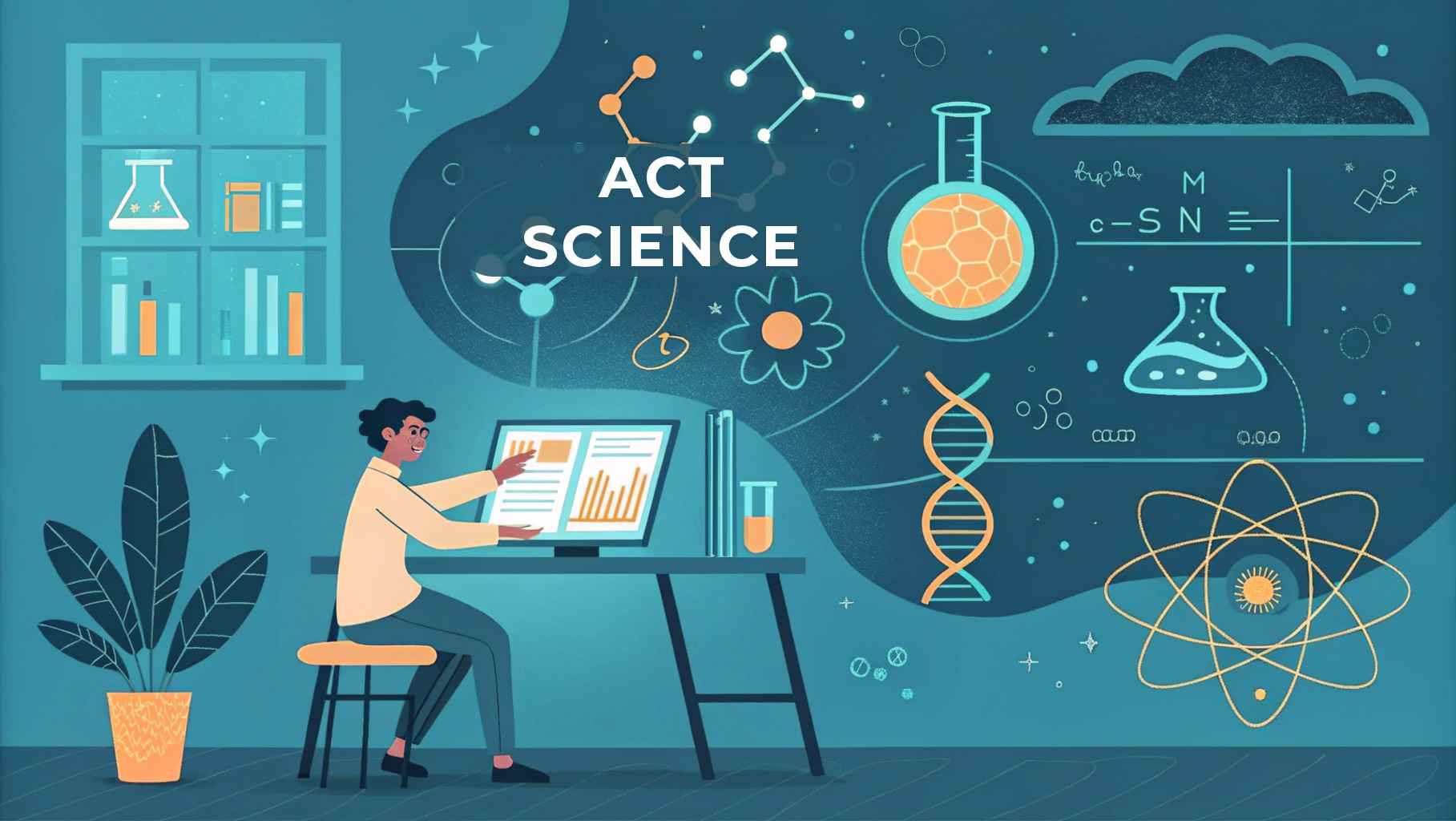
ACT Science Prep
Master the ACT Science section with our expert-guided program. We help to gain essential skills to interpret data, analyze scientific information, and solve problems efficiently.
Topic We Cover
The ACT Science test comprises several scientific data sets in graphs, charts, and passages. It measures your ability to understand interpretation, analysis, evaluation, reasoning, and problem-solving skills required in the natural sciences.
Biology, chemistry, Earth and space studies (geology, astronomy, and weather), and physics are covered. You don’t need to know much about these topics, but you should know a few things from basic science classes to properly answer some of the questions.
Data Representation (15 Questions)This section’s questions involve interpreting data presented in tables, graphs, charts, and figures. One or more graphs or charts will help the students answer questions. These sections usually take the least time.
Research Summaries (18 Questions)This section offers in-depth comprehension and analysis of scientific studies and experiments. It focuses on understanding, evaluating, and interpreting one or more experiments, with questions aimed at evaluating the experimental design and analyzing the results.
Conflicting Viewpoints (7 Questions)This section evaluates multiple conflicting hypotheses based on differing assumptions or incomplete data. The questions focus on analyzing, understanding, and comparing these alternative explanations for the same scientific phenomenon.
Importance and Benefits of ACT Science
The ACT Science test pivotally assesses a student’s aptitude for scientific reasoning, a skill applicable in numerous academic fields and careers. With a growing emphasis on data interpretation and critical analysis today, excelling in the ACT Science test demonstrates a student’s capacity to navigate complex information effectively.
Scoring well on the ACT Science test can significantly enhance a student’s college prospects. A strong score demonstrates a student’s proficiency in scientific reasoning, setting them apart as a well-rounded candidate. Furthermore, this achievement showcases a student’s adaptability to challenges, a quality valued by colleges and future employers.
The questions of test requires you to analyze and understand key features and concepts of the provided information, carefully examine the relationship between the data and the conclusions or hypothesis, and generalize from the given information to new insights, draw conclusions, or make predictions.
ACT Science Test?
You will have 35 minutes to answer 40 multiple-choice questions on the ACT Science test.
The writing part after this is optional, but the last part of the ACT is needed.
There are seven topics: Data representation, Research summary, and Conflicting viewpoints. Each passage will have 5 to 7 multiple-choice questions.
Many of the passages will have charts, tables, graphs, and figures, and you will be asked to explain what they mean.
While basic math skills might be needed, they are not directly tested, and you are not allowed to use a computer on the ACT science part.
You cannot use a calculator in the science section.
Best Strategies for ACT Science Prep for Students
To excel in the ACT Science test, students can adopt a strategic approach:
Never try to understand the full paragraph
Remember that the test evaluates your ability to apply what you have learned, not your ability to sum up entire chapters. Avoid putting too much effort or time into understanding every text aspect.
The best use of your time is to read the sections to understand their substance quickly, then read the questions and, if needed, go over the passages in further depth.
Improve your skills to understand numbers, charts, and graphsUnderstand the many types of charts, maps, figures, and graphs. Please read the title and labels each time you examine one. Understand each axis’s meaning and how they relate to one another.
As you practice, keep track of your mistakes
Reviewing practice questions and finishing mock ACT exams is the most effective strategy to be ready for the science portion of the exam. Make a regular list of your errors so you can maximize your practice.
Every time you make a mistake, categorize it based on the kind of passage and question. This will assist you in categorizing errors because the official ACT practice exams typically indicate which subscore each question belongs to.
How to Prepare for the ACT Science Test?
Any student pursuing higher education can enroll for the ACT Science test. While scientific knowledge is beneficial, the test primarily assesses your ability to analyze and interpret data, making it accessible to many students.
Familiarize yourself with the various question types and the layout of the test.
Regularly engage with scientific data and enhance your skills in deriving conclusions.
Practice reading scientific passages with a critical eye to extract key information.
Develop strategies to manage time effectively, as the test has a stringent time limit.
Take practice tests to simulate real test conditions and track your progress.

ACT English Prep
This section tests topics like grammar, punctuation, and sentence structure. We help you analyze and improve written passages, ensuring complete preparation for this vital section of the ACT exam.
Topic We Cover
The ACT English section evaluates a student’s understanding of language fundamentals as well as their comprehension skills.
There are two kinds of English questions on the ACT: Questions about Usage and Mechanics and Questions about Rhetorical skills. You can read more about the topics and skills these questions test, as well as see some example ACT English questions and their answers below.
Usage/Mechanics (40 Questions)
- Punctuation marks like commas, apostrophes, colons, dashes, question marks, and semicolons are key to clear and effective writing.
- The Grammar and Usage section covers a range of key concepts that are important for excel in the English language. These include subject-verb agreement, pronoun agreement and forms, adjectives, adverbs, verb forms, modifiers and idioms.
- Understanding sentence structure is important for crafting clear and effective writing. Common issues in sentence structure include subordinate clauses, sentence fragments, misplaced modifiers.
Rhetorical Skills in ACT ( 35 Questions )
- Strategy questions check your ability to develop a topic by selecting suitable expressions that align with the essay’s purpose and audience, evaluating the impact of adding, deleting, or revising supporting details, and determining the relevance of statements within the context.
- Organization questions evaluate how effectively you organize ideas, including your ability to choose strong opening, transitional, and closing sentences.
- Style questions measure your skill in selecting appropriate words and imagery, managing sentence elements, maintaining consistent style and tone, and avoiding unclear pronouns.
Format of the ACT English Test?
The English section includes a total of 75 multiple-choice questions.
You have 45 minutes to complete this section, so manage your time wisely.
The questions are based on passages, each followed by multiple-choice questions on grammar, punctuation, and rhetorical skills.
Some questions focus on underlined portions for revision, while others address the passage or specific sections.
The questions cover grammar, usage, punctuation, sentence structure, and rhetorical skills from your high school curriculum.
By understanding this format, you can better prepare for the ACT English section and improve your test-taking strategies.
Best Tips for ACT English Prep for students?
Understanding the Format: Familiarize yourself with the structure of the test and the types of questions you’ll encounter.
Grammar Review: Brush up on grammar rules, focusing on common errors and usage.
Practice Tests: Take numerous practice tests to get comfortable with the test format and timing.
Identify Weaknesses: Analyze your mistakes to identify areas where you need improvement.
Vocabulary Enhancement: Work on expanding your vocabulary to better comprehend complex passages.
Rhetorical Strategies: Study different rhetorical strategies to enhance your passage analysis skills.
What are the benefits to Students?
Achieving a strong score on the ACT English test can have a major impact on a student’s chances of getting into college.
A high score shows that a student is good at language skills and can make them more attractive to colleges and universities.
Additionally, doing well on the ACT English test means that a student has solid knowledge in English, which will help the students both in college and throughout their career.
How to Prepare for the ACT English Test?
Anyone planning to pursue higher education can enroll for the ACT English test. High school students, especially juniors and seniors, typically take the ACT as part of their college application process. By practicing, a person becomes perfect.
There are a number of books that can help you get ready for this part.
To study for the test, use the approved paper that was given to you. This short summary tells you what to expect during the test.
Look over questions from the English parts of previous years. In this graph, you can see the different kinds of questions that are on the real test and how they have changed over time.
Learn how to understand what you’re reading better.
The internet has made life better for everyone. There are many kinds of study tools that you can find on the internet.
There are a lot of classes, both online and off, that can help you prepare for the ACT.
Take as many full-length practice tests as you can before the real test.
The ACT group also has formal practice tests that can help you get a better feel for the format and types of questions.

ACT Reading & Writing Prep
At Science Seekers, tutors provide tests for reading comprehension, analysis, and writing skills, measuring students' ability to understand, analyze, and communicate effectively in writing.
Topic We Cover
The reading section provides five scores: an overall section score, three reporting category scores reflecting specific knowledge and skills, and an understanding complex texts indicator. The approximate percentage of the section allocated to each reporting category is:
The first category is Key Ideas and Details (52-60%) and requires you to carefully analyze texts to identify key ideas and themes. Accurately summarize information and concepts, understand relationships, and draw logical inferences and conclusions, including recognizing sequential, comparative, and cause-effect relationships.
The second category is Craft and Structure which is 25 to 30% of the test, focusing on analyzing language and structure in texts. These questions ask you to determine the meaning of phrases and words, evaluate an author’s word choice rhetorically, and analyze the structure of the text. phrase and word meanings.
The last category is Integration of knowledge and ideas (13-23%) which requires you to understand authors’ claims, difference between facts and opinions, and use evidence to make connections between different texts that are related by topic.
What is the ACT Writing Test?
The ACT writing test is a 40-minute essay test that is designed to evaluate your writing skills. It features a one writing prompt that describes a complex issue and provides three distinct perspectives on it. The test is conducted using paper and pencil.
The ACT writing test complements the English and Reading tests, providing postsecondary institutions with insights into students’ understanding of standard written english conventions and their ability to produce a direct writing sample. The writing test can only be taken after completing all four multiple-choice tests in the same session.
Reasons Why the ACT Writing Test is Optional
We provide the ACT writing test as an alternative since postsecondary schools have different requirements.
Whether or not to require ACT writing test results for admissions and/or course placement is a decision that postsecondary institutions make on their own.
Depending on the requirements of the schools they are considering, students will choose whether or not to take the writing test.
Importance and Benefits of ACT Reading & Writing
The ACT Reading and Writing section is of paramount importance as it reflects a student’s aptitude in comprehending and responding to complex written material. Our one-on-one tutoring provides strong reading and writing skills that are essential not only for academic success but also for effective communication in various personal and professional scenarios.
Scoring well on the ACT Reading & Writing section can significantly impact a student’s college application. A high score demonstrates advanced literacy skills and the ability to convey ideas coherently. Moreover, excelling in this section showcases a student’s adaptability and proficiency in crucial skills for college-level coursework and beyond.
How to Prepare for the ACT Reading and Writing Test?
The ACT Reading and Writing section is suitable for any student aspiring to pursue higher education. The skills tested in this section are applicable across a wide range of academic disciplines.
Our comprehensive preparation plan for the ACT Reading and Writing section might include the following steps:
Practice ReadingEngaging in regular reading of newspapers and magazines, as well as participating in discussions and debates about various issues, can help improve comprehension skills and expand vocabulary.
Analyze PassagesWe help you develop the ability to dissect passages, identify main ideas, and extract key information. Keep in mind that your readers understand you had only 40 minutes to write your essay, so aim to make it as polished as possible within that time frame.
Writing PracticeOur preparation encourages you to organize your thoughts clearly and present relevant information logically. It helps enhance your writing skills in various forms, such as essays, reports, and research papers, with a focus on structure. This approach will refine your style and improve your grammar.
Grammar ReviewOur tutors focus on essential grammar rules and usage to strengthen writing and language skills. Take a few minutes before time is up to review your essay. Correct any mistakes you find. If there are words that are difficult to read, rewrite them clearly.
Time ManagementPractice timed reading and writing exercises to manage the test’s time constraints effectively. In MLS classes, managing your time wisely will help you stay organized, meet deadlines, and engage meaningfully with course materials.
MCAT Preparation
Your Path to Medical School Starts Here
At Science Seekers, we offer a comprehensive MCAT (Medical College Admission Test) preparation program designed to help aspiring medical students achieve competitive scores and gain admission to top medical schools in the U.S. and Canada.

Biology & Biochemistry
Understand core concepts of molecular biology, cell structure, genetics, and metabolism crucial for medical science.

General & Organic Chemistry
Master chemical reactions, periodic trends, bonding, and laboratory techniques with application-based learning.

Physics
Strengthen your grasp of motion, energy, electricity, fluids, and other key physics principles tested on the MCAT.
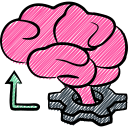
Critical Analysis and Reasoning Skills (CARS)
Develop analytical thinking and reading comprehension skills essential for interpreting complex passages.
Key Feature

Strategy Sessions for timing, test anxiety, and exam-day prep

Full-Length Mock Tests and detailed performance analysi

Live Interactive Classes led by MCAT experts

Topic-wise Practice with 1000+ MCQs

Doubt Solving & Mentorship with personalized feedback

Specialized preparation materials
Benefits of MCAT Online Course with Science Seekers
Choosing Science Seekers for your MCAT preparation means more than just test prep — it’s a strategic step toward your medical career. Our online course is designed to provide personalized, results-driven learning that equips you for success.
What Sets Our MCAT Program Apart?
Expert Faculty Guidance
Learn from experienced instructors with deep subject knowledge and proven success in medical test prep.
Comprehensive Content Mastery
Full coverage of all MCAT sections — with detailed lessons in biology, chemistry, physics, psychology, and CARS.
Flexible Online Learning
Access live sessions and recorded lessons from anywhere, anytime — ideal for busy students.
Custom Study Plans
Structured timelines tailored to your strengths, weaknesses, and test date.
Practice-Driven Approach
1000+ practice questions, full-length mock exams, and analytics to track your performance.
Practice-Driven Approach
1000+ practice questions, full-length mock exams, and analytics to track your performance.
One-on-One Mentorship
Regular progress reviews and personal mentoring to address academic and strategic gaps.

IMAT Preparation
Crack the International Medical Admissions Test with Confidence
The IMAT (International Medical Admissions Test) is your gateway to studying medicine in top universities in Italy. At Science Seekers, we offer a structured, expert-led IMAT preparation program that helps you master the required content, sharpen your reasoning skills, and approach the exam with confidence.

What We Cover:
Choosing Science Seekers for your MCAT preparation means more than just test prep — it’s a strategic step toward your medical career. Our online course is designed to provide personalized, results-driven learning that equips you for success.
Logical Reasoning & General Knowledge
Critical thinking, problem-solving, and pattern recognition
Strengthen reading comprehension and analytical skills
Key general knowledge topics including science, history, and current affairs
Biology
- Cell biology, genetics, physiology, and evolution
- Real-world applications and visual concept reinforcement
Chemistry
Atomic structure, bonding, reactions, and the periodic table
Organic and inorganic chemistry with exam-oriented practice
Physics & Mathematics
Mechanics, electricity, waves, and fundamental math concepts
Equations, units, and real-world scientific problem-solving

Key Features of Our ACT Tutoring

Live Online Interactive Classes

Over 50 hours of tutoring

1:1 Classes available for the ACT Exam

Over 100 adaptive mock tests

Support for 2 attempts for the Digital SAT Exam

Specialized preparation materials
Benefits of IMAT Online Course with Science Seekers
At Science Seekers, our IMAT preparation program is designed to help students succeed in one of the most competitive international medical entrance exams. We combine expert instruction, interactive learning, and proven strategies to give you an edge.
Why Choose Our IMAT Course?
Expert Faculty Support
Learn from qualified tutors with deep knowledge of IMAT content and experience in European medical admissions.
Targeted Curriculum
Focused preparation across all IMAT sections – Logical Reasoning, Biology, Chemistry, Physics, and Math.
Comprehensive Study Materials
Access high-yield notes, video lectures, practice worksheets, and previous exam papers.
Realistic Mock Exams
Simulate the actual test with timed mock exams and receive performance feedback and score analysis.
Personalized Learning Plans
Tailored strategies based on your strengths and weaknesses, ensuring efficient and effective preparation.
Interactive Live Classes
Engage with tutors in real-time, ask questions, and participate in problem-solving sessions.
24/7 Learning Access
Learn anytime with recorded classes and digital resources, ideal for international time zones.

AMC Preparation
Achieve Mathematical Excellence. Compete with Confidence.
The American Mathematics Competitions (AMC) are designed to challenge and inspire students to develop a deeper understanding of mathematical concepts. At Science Seekers, we offer expert-led preparation for AMC 8, AMC 10, and AMC 12—empowering students to succeed in competitive math environments.

What We Cover:
At Science Seekers, our AMC preparation covers core mathematical concepts including algebra, number theory, geometry, counting and probability, and logical reasoning. We focus on building strong problem-solving skills through topic-wise practice, past paper analysis, and strategic techniques to help students excel in AMC 8, 10, and 12.
AMC 8
Our AMC 8 tutoring is designed to help students be successful with the aid of providing complete assistance in all key mathematical regions. Our focus is on growing problem-solving skills and a deep understanding of middle math principles, including:
Number Theory
It focuses on prime numbers, elements, divisibility, greatest common divisors, and modular arithmetic to handle various integer-based problems.
Algebra
This section focuses on solving linear equations and inequalities, manipulating expressions, and applying functions and sequences to problem-solving abilities.
Geometry
This section covers the properties of shapes (triangles, circles, polygons), solves area/perimeter/quantity issues, and explores coordinate geometry plus basic trigonometry.
Combinatorics
This section focuses on understanding counting standards, permutations, combinations, and opportunities to clear up established counting troubles.
Problem-Solving Strategies
We focus on powerful strategies and heuristics to help students address mathematical issues whilst practicing pattern AMC 8 questions and beyond assessments to construct confidence and talent.
AMC 10/12
Our AMC 10/12 tutoring application offers established, in-depth training to help students succeed. We focus on core mathematical standards, competition techniques, and logical reasoning, including:
Algebra
This section includes fixing equations knowledge functions, using manipulations, and successfully modeling word problems.
Geometry
This section includes Mastering geometric standards, theorems, and differences that help students solve problems related to shapes, coordinate geometry, and symmetry with self-belief.
Number Theory
It focuses on integer properties, primes, divisibility, and modular arithmetic to tackle styles, sequences, and complicated problem-solving demanding situations.
Combinatorics
It specializes in counting strategies, diversifications, combinations, and chances to broaden strong combinatorial reasoning for complex issues.
Advanced Problem-Solving Strategies
It complements vital questioning via reading solutions, practicing numerous issues, and applying powerful techniques to excel in math competitions.

Key Features of Our AMC Tutoring

Live Online Interactive Classes

Over 50 hours of tutoring

1:1 Classes available for the ACT Exam

Over 100 adaptive mock tests

Support for 2 attempts for the Digital AMC Exam

Specialized preparation materials
Benefits of Our Online AMC Practice Test
- Strengthens Core Math Skills
In-depth exercises in algebra, geometry, combinatorics, and various concepts to prepare students for advanced contests.
- Enhances Time Management & Test Strategies
Timed mock tests simulate actual examination situations, improving students’ pace, accuracy, and self-belief.
- Instant Feedback & Performance Analysis
Detailed causes for each query help students identify weaknesses and refine problem-solving strategies.
- Develops Critical Thinking & Analytical Skills
Regular exercise builds robust reasoning capabilities crucial for fulfillment in higher-degree math competitions.
- Flexible & Accessible Learning
Students can access tutoring classes and exercise exams anytime, growing a personalized and efficient look at the plan.

